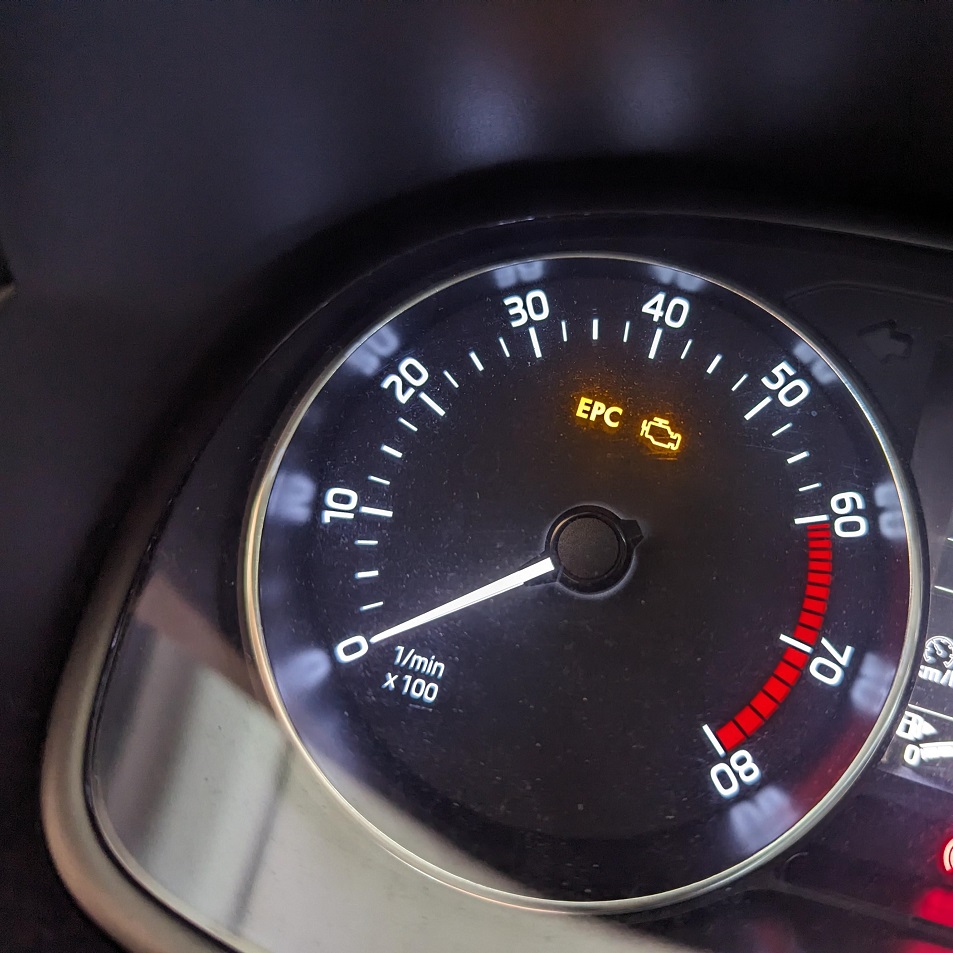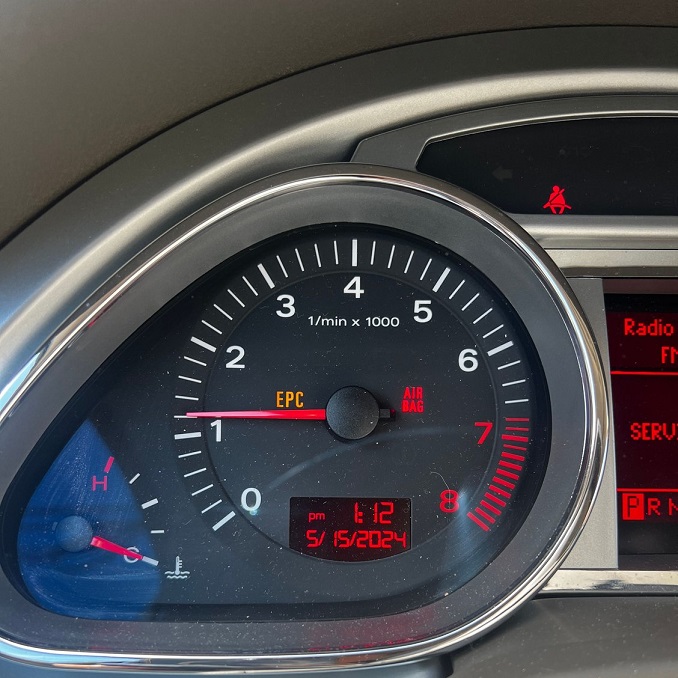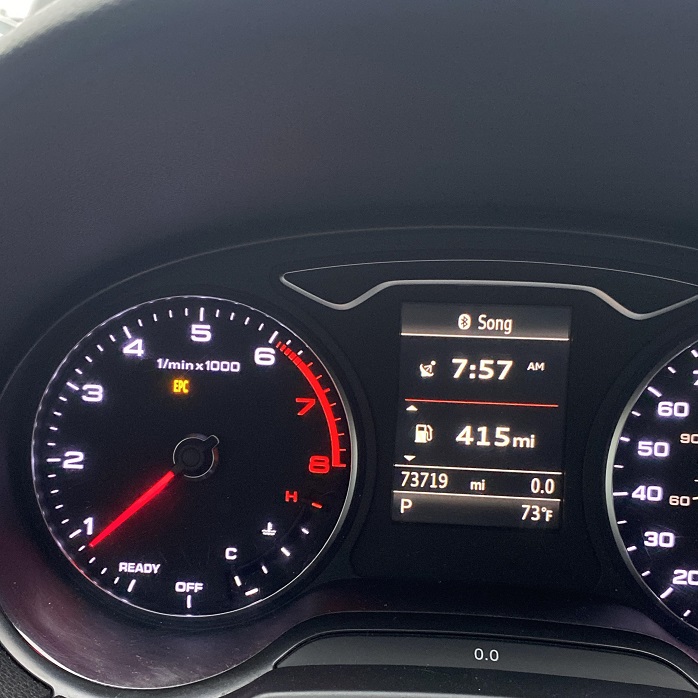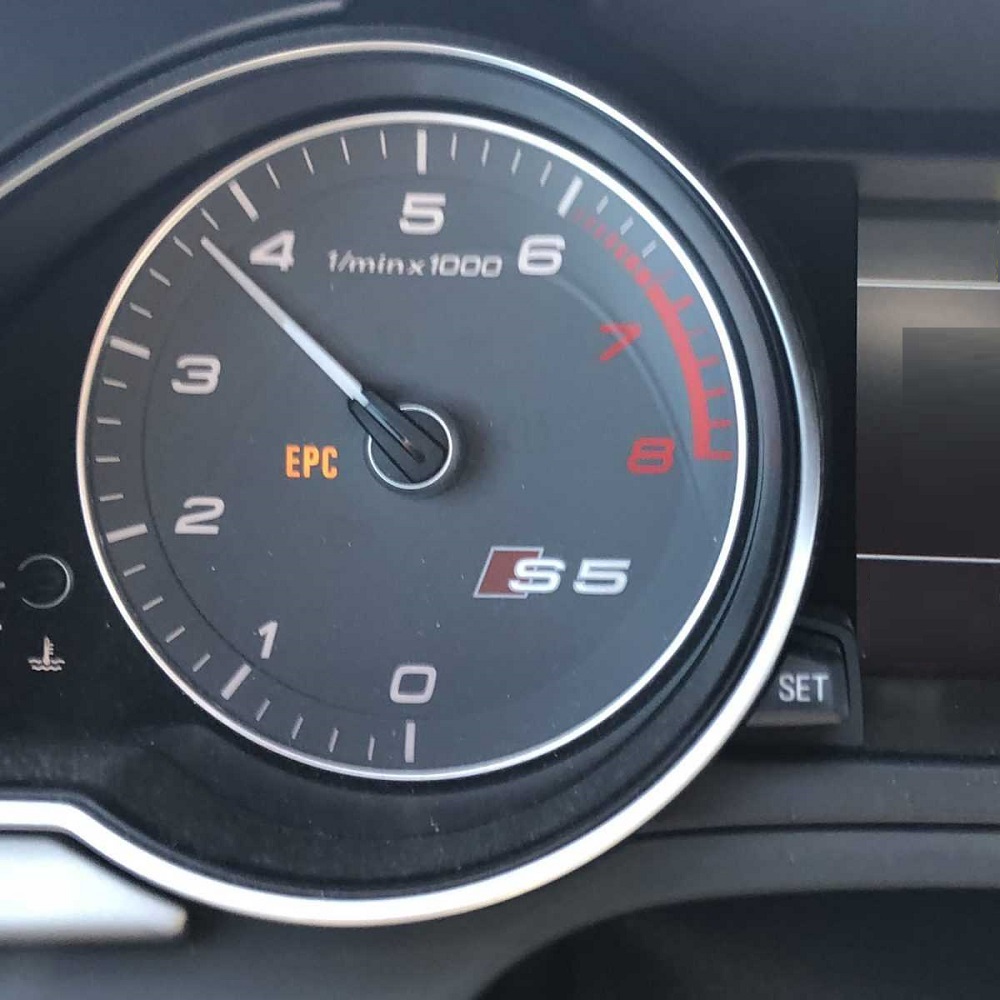What is an EPC Light in a Car?
The EPC light in a car stands for Electronic Power Control. It monitors the engine’s performance. When you see the EPC light, it means the vehicle’s system has found an issue. This issue could be with the throttle system, or any part related to the engine’s power. Unlike the check engine light, the EPC light is specific to some car brands. This includes Volkswagen, Audi, and some others.
Seeing this light can be a sign of minor or serious problems. It can indicate anything from a faulty sensor to a major mechanical failure. It’s part of your car’s onboard diagnostics system. The EPC light can come on with other warning lights too. Always take the EPC light seriously to avoid damage to your vehicle.
Common Reasons for the EPC Light to Illuminate
When the EPC car light turns on, it’s critical to understand the potential triggers. Here are some common issues that cause the EPC light to illuminate:
- Faulty Throttle Body: An irregular airflow to the engine might result due to a malfunctioning throttle body, leading to the EPC light warning.
- Malfunctioning Sensors: The EPC system relies on sensors. A defective sensor, such as a throttle position sensor, can activate the EPC light.
- Trouble with the Engine Speed Sensor: This sensor monitors how fast the engine is running. If it fails, the EPC light may come on.
- Issues with the Brake Light Switch: If this switch is faulty, it can falsely signal an error, causing the EPC light to engage.
- Problems in the Power Steering: Difficulties within the power steering system can trigger the EPC light, as control of the vehicle is compromised.
- Cruise Control Malfunctions: The EPC might also detect issues with the cruise control system, resulting in the alert.
In some cases, the EPC car light may be a result of a simple system glitch or an improperly closed gas cap. However, determining the exact cause requires a thorough diagnosis. Ignoring the EPC car light could lead to more severe problems. Owners should address EPC light warnings promptly to ensure vehicle safety and performance.
The Importance of Immediate Attention to EPC Lights
Ignoring the EPC car light can lead to major issues. It’s a signal that your car needs a check-up. If you don’t act quickly, small problems can become bigger, costlier ones. Immediate attention to this light is crucial for these reasons:
- Prevents Further Damage: Tackling the issue early can stop other car parts from getting damaged. This can save you money.
- Ensures Safety: Left unchecked, the issue causing the light to show can worsen. This may put your safety at risk.
- Maintains Performance: The EPC light often relates to engine power problems. Fixing these fast helps keep your car running well.
- Avoids Breakdowns: A car with unresolved problems is more likely to break down. Paying attention to the EPC light can prevent this.
Act swiftly if the EPC car light comes on. It’s not just about the immediate inconvenience. It can affect your car’s long-term health and your safety on the road. Always consult a professional if you’re unsure about the cause or solution.
Steps to Take When Your EPC Light Comes On
When the EPC car light is on, prompt action is important. Follow these steps to address the issue:
- Safety First: Reduce your speed and drive carefully. Look for a safe place to stop if needed.
- Check Other Indicators: Note if other lights, like the check engine or ABS, are also lit.
- Calm Inspection: Once stopped, calmly check for obvious triggers like an open gas cap.
- Engine Off and On: Try turning the engine off and on again to see if the light resets.
- Document Symptoms: Record any performance changes or strange sounds for the mechanic.
- Professional Scan: Get a professional diagnostic scan to pinpoint the exact problem.
- Avoid Heavy Use: Don’t push the car hard until the issue is resolved.
By taking these steps with the EPC car light, you reduce risk and help ensure your safety. Always seek a mechanic’s expertise for EPC light issues. They can give the right advice and repair the problem effectively.
How to Diagnose the Cause of an EPC Light Warning
When the EPC car light comes on, you need a clear plan to identify the issue. You can take several steps to diagnose the problem. Keep the process simple and methodical to avoid missing any clues. Here’s a straightforward approach to finding the root cause of an EPC light warning:
- Check for Obvious Issues: Look for simple things first, like a loose gas cap or visible leaks.
- Review the Car’s History: Think about recent events. Did it start after hitting a bump or refueling?
- Read Error Codes: Use an OBD-II scanner to read the trouble codes from your car’s computer.
- Inspect Key Components: Check the throttle body, sensors, and wiring for signs of damage.
- Seek Patterns: Link the EPC light with other symptoms your car might have shown recently.
- Don’t Overlook Battery Health: A weak battery can sometimes trigger false EPC alerts.
Carry out each step with care and attention. If you are not comfortable diagnosing the issue, it is crucial to seek help from a professional mechanic. They have the expertise and tools to diagnose and fix EPC car light issues accurately.
The Role of Professional Mechanics in EPC Light Issues
When your car’s EPC light illuminates, it’s advisable to consult a professional mechanic. They play a critical role in addressing and resolving EPC light issues effectively. Below outlines the steps and benefits of involving a professional.
- Expert Diagnosis: Mechanics have specialized diagnostic tools to accurately read error codes and determine the specific cause of the EPC light activation.
- Proper Repair: With their knowledge and technical skills, mechanics can perform precise repairs on the identified issues, whether it’s replacing a faulty sensor or repairing a malfunction in the throttle body.
- Quality Parts: In case parts need replacing, professionals ensure that only high-grade components compatible with your vehicle’s system are used, which further guarantees long-term performance.
- Avoiding Further Damage: Attempting a DIY fix without the proper know-how can lead to more harm than good. Mechanics ensure that the problem is fixed without causing damage to other parts of your car.
- Warranty and Guarantees: Many mechanical repairs come with service warranties, providing you with peace of mind that the problem is covered if it recurs within the warranty period.
- Safety Assurance: Mechanics also check for supplementary issues that could compromise your safety, providing a comprehensive service that goes beyond just turning off the EPC light.
- Time-Efficient: A professional can often diagnose and address the issue much quicker than you might manage yourself, saving you time and the inconvenience of prolonged car troubles.
In conclusion, whilst it is useful to understand the basics of EPC light issues as a car owner, entrusting your vehicle to a professional mechanic is critical to ensure the safety, performance, and longevity of your car. Keep the ‘epc car light’ issue in safe hands for the best care of your vehicle.
Preventative Measures to Avoid EPC Light Activation
To keep the EPC car light from turning on, take these preventative actions. They can help avoid triggering the light and ensure your vehicle runs smoothly.
- Regular Maintenance: Stick to a strict maintenance schedule. Regular check-ups catch small issues before they get big.
- Clean Throttle Body: Keep the throttle body clean. It prevents irregular airflow that might trip the EPC light.
- Battery Care: Ensure your car’s battery is in good shape. Weak batteries can cause EPC errors.
- Tight Gas Cap: Always close the gas cap properly. A loose cap can signal a false EPC alert.
- Sensor Checks: Have your car’s sensors checked and replaced if needed. Faulty sensors often activate the EPC light.
- Healthy Brakes: Maintain your brake system. A faulty brake light switch can cause the EPC light to come on.
- Quality Fuel: Use the right type of fuel. Bad fuel can affect engine performance and set off the EPC light.
- Avoid Harsh Driving: Drive carefully. Harsh driving can stress car systems and lead to problems.
By following these steps, you can lessen the chance of EPC car light warnings. You’ll save on potential repair costs and keep your car running well. Always consult a mechanic for any uncertainties to maintain your car’s health.
FAQs on EPC Car Light Indicators
When it comes to the EPC car light, many car owners have questions. Let’s address some of the most common queries regarding this topic in a clear and concise manner.
What does EPC stand for?
EPC means Electronic Power Control. It oversees your car’s engine performance.
Is it safe to drive with the EPC light on?
Drive with caution if the light comes on. Seek a professional’s advice as soon as possible.
Can the EPC light indicate a minor issue?
Yes, sometimes it’s a minor glitch, like a loose gas cap. But always get it checked.
Will the EPC light reset itself?
Turning off and on the engine might reset it. But the issue causing it likely remains.
What happens if you ignore the EPC light?
Ignoring it can lead to more damage. This may make repairs more costly.
Should I use a scanner for the EPC light?
An OBD-II scanner can help read error codes and is a helpful diagnostic tool.
What kind of maintenance prevents EPC light issues?
Regular car maintenance, especially on the throttle body and sensors, can prevent issues.
Understanding your car’s EPC light is vital for maintaining vehicle performance and safety. If you’re ever in doubt about the EPC car light or any other car-related indicators, consulting with a professional mechanic is the best course of action to ensure your vehicle’s reliability and your peace of mind on the road.



